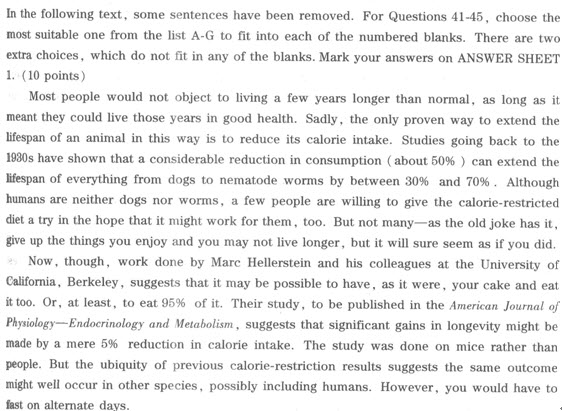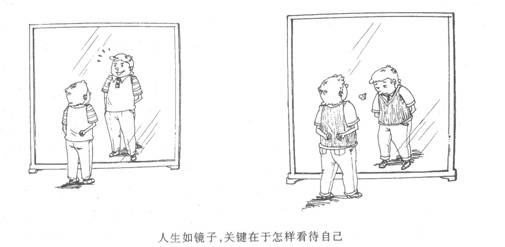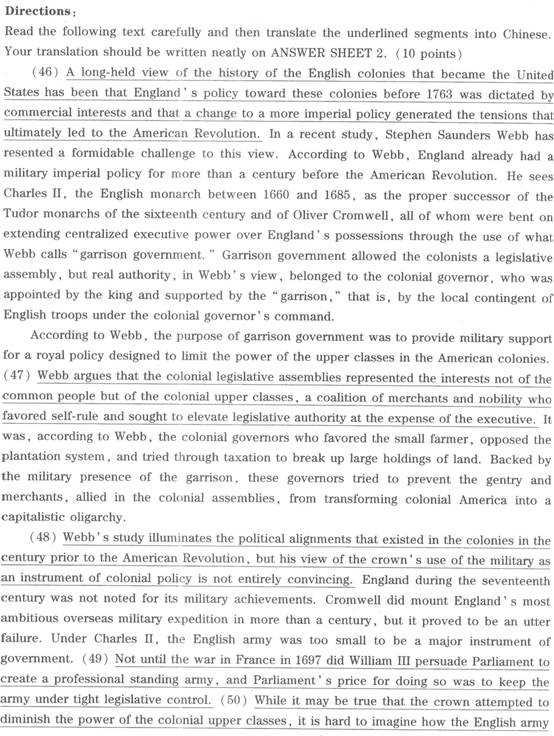
(41)
Cancer is the uncontrolled growth ofceils. For a cancer to develop efficiently, it needs multiple mutations to accumulate in the DNA o~the cell that becomes the tumor's ancestor.
(42)
A slower rate of cell division thusresults in a slower accumulation of cancer-causing mutations.
(43)
Heavy water is heavy because the hydrogenin it weighs twice as much as ordinary hydrogen(it has a proton and a neutron in its nucleus, instead of just a proton).
Chemically,however, it behaves like its lighter relative. This means, among other things,thatit gets incorporated into DNA as that molecule doubles in quantity during celldivision.
(44)
Dr Hellerstein first established how muchmice eat if allowed to feed as much as they want. Then he set up a group ofmice that were allowed to eat only 9595 of that amount. In both cases, he usedthe heavy-water method to monitor cell division. The upshot was that the rateof division in the calorie-restricted mice was 3795 lower than that in thosemice that could eat as much as they wanted--which could have a significanteffect on the accumulation of cancer-causing mutations.
(45)
[A] To stop this happening, cells haveDNA-repair mechanisms. But if a cell divides before the damage is repaired, thechance of a successful repair is significantly reduced.
[ B] Bingeing and starving is how manyanimals tend to feed in the wild. The uncertain food supply means theyregularly go through cycles of too much and too little food (it also means thatthey are often restricted to eating less than they could manage if food were omnipresent).
[C]But calorie-reduction is not all themice had to endure. They were, in addition, fed only on alternate days :bingeing one day and starving the next. So, whether modern man and woman,constantly surrounded by food and advertisements for food, would really be ableto forgo eating every other day is debatable.
[D] Why caloric restriction extends thelifespan of any animal is unclear, but much of the smart money backs the ideathat it slows down cell division by denying cells the resources they need togrow and proliferate. One consequence of that slow-down would be to hamper thedevelopment of cancerous tumors.
[E] So, by putting heavy water in thediets of their mice, the researchers were able to measure how much DNA in thetissues of those animals had been made since the start of the experiment (andby inference how much cell division had taken place ), by the simple expedientof extracting the DNA and weighing it.
[F] The second reason, according toElaine Hsieh, one of Dr Hellerstein's colleagues, is that cutting just a fewcalories overall, but feeding intermittently, may be a more feasible eatingpattern for some people to maintain than making small reductions each and everyday.
[G] At least, that is the theory. Untilnow, though, no one has tested whether reduced I calorie intake actually doesresult in slower cell division. Dr Hellerstein and his team were able to do sousing heavy water as a chemical "marker" of the process.
根据以上内容,回答1~5题。
__________。
-
Study the following two picturescarefully and write an essay of 160-200 words. In your essay, you should
1 ) describe the pictures briefly,
2) interpret the meaning of the pictures,and
3) give your comment.
You should write neatly on ANSWER SHEET2. (20 points)

-
Write a letter of complaints according to thefollowing situation: You bought an air conditioner and had it installed theother day, but you found that the air-conditioning didn' t work when it operated.Write a letter to
1) point out the malfunction and
2) suggest some solutions.
You should write about 100 words onANSWER SHEET 2. Do not sign your own name at the end of the letter. Use"Li Ming" instead. You don' t have to write the address. ( 10 points)
-
__________。
-
__________。
-
__________。
-
__________。
-


根据以上内容,回答1~5题。
__________。
-
__________。
-
__________。
-
__________。
2005年初级经济师考试《旅游经济专
初级旅游经济师试题及答案一
初级旅游经济师试题及答案二
2005年初级经济师考试《邮电经济专
初级经济师试题及答案1(邮电经济)
初级经济师试题及答案1(保险经济)
初级经济师试题及答案2(邮电经济)
初级经济师试题及答案2(保险经济)
初级经济师试题及答案3(保险经济)
2014年经济师初级考试真题《建筑经


